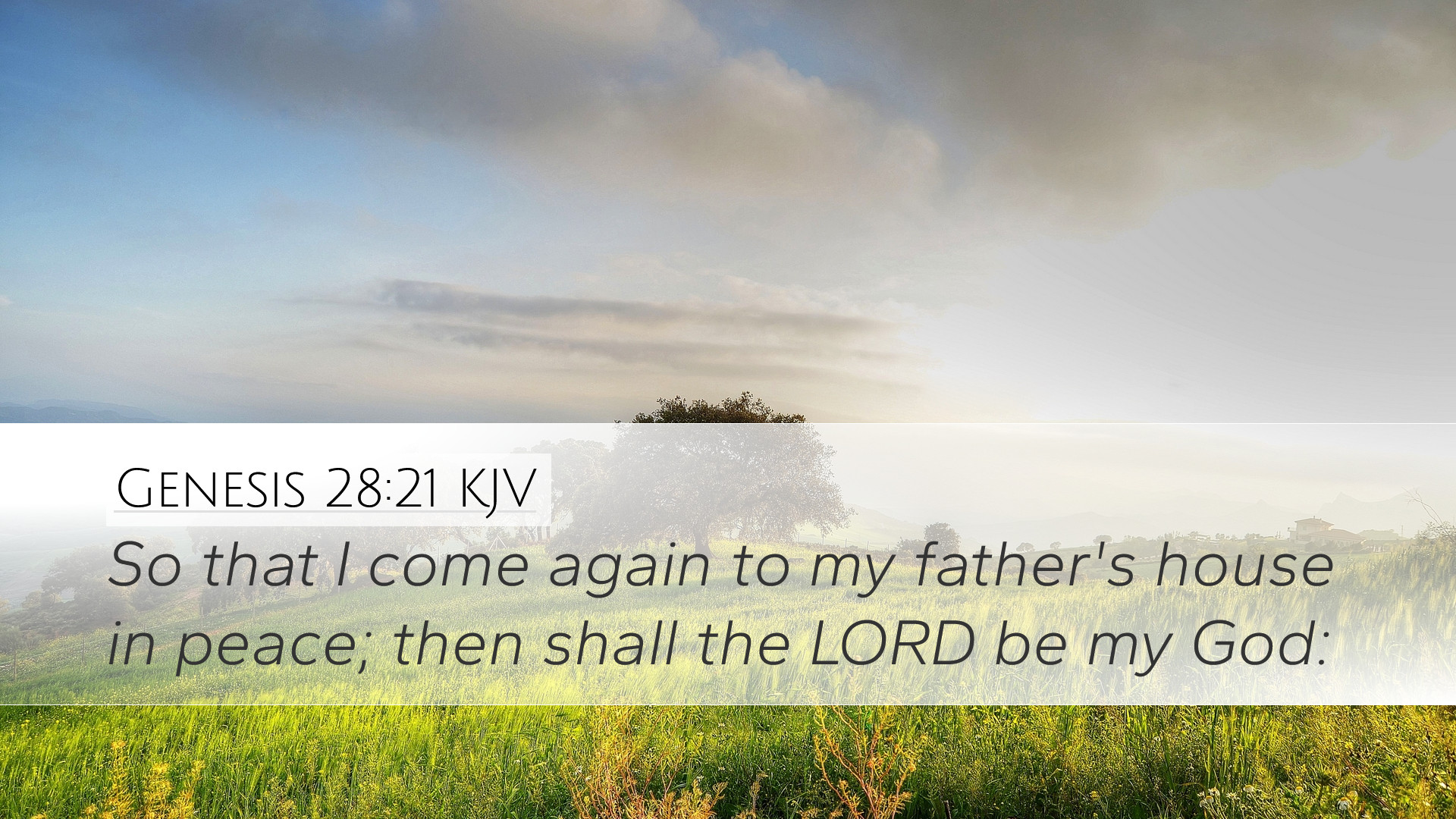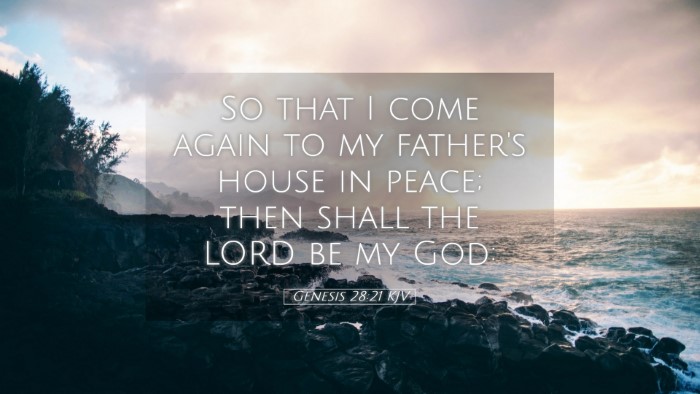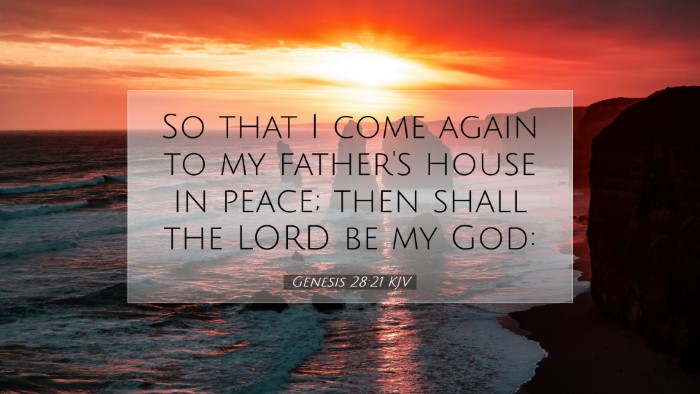Commentary on Genesis 28:21
Genesis 28:21 states: "So that I come again to my father's house in peace; then shall the LORD be my God." This verse is laden with profound theological implications and personal reflections from one of the patriarchs of faith, Jacob. The context of this declaration forms a part of a significant turning point in Jacob's life, particularly during his flight from Esau and his transformative encounter with God. Below, we explore insights drawn from various public domain commentaries.
Contextual Analysis
Jacob, the son of Isaac and Rebekah, finds himself in a precarious situation. Fleeing from his brother Esau, who seeks revenge for Jacob's deception, Jacob encounters God at Bethel, where he dreams of a ladder reaching to heaven. In this moment, Jacob receives a divine promise that highlights God's unwavering presence and assurance of protection during his journey.
Matthew Henry’s Commentary
Matthew Henry notes that Jacob’s vow stems from his recognition of God’s covenantal faithfulness. Henry emphasizes the desperation and earnestness of Jacob’s plea, indicating that Jacob desires peace, not only in his physical journey but also in his relational dynamics back home. Henry asserts that the peace Jacob seeks is indicative of a restored relationship with Esau, which foreshadows the reconciliation themes prevalent throughout Scripture.
Spiritual Significance of "Peace"
- Divine Peace: The peace Jacob seeks can be understood as a holistic shalom that encompasses physical safety, relational harmony, and spiritual well-being.
- Journey Metaphor: Jacob's journey represents the pilgrim nature of faith where each believer seeks peace in their earthly pilgrimage.
Albert Barnes’ Remarks
Albert Barnes further elaborates on the implications of Jacob's vow. He interprets this promise as Jacob’s acknowledgment of God’s providence and protection. Barnes articulates that the phrase "then shall the LORD be my God" signifies a transition in Jacob's relationship with God, from that of a mere recipient of familial faith to a personal, responsive faith.
The Transition of Faith
- Personal Relationship: Barnes suggests that this statement indicates Jacob's intent to embrace a covenantal relationship with God, reminiscent of earlier patriarchs.
- Faith Formation: Jacob’s journey shows how adversity initiates the process of forming a deeper, more personal faith.
Adam Clarke’s Insights
Adam Clarke provides a detailed interpretation of the specific conditions Jacob stipulates in his vow. Clarke suggests that Jacob’s request for peace indicates wisdom, as he is fully aware of the familial tensions surrounding him. Clarke emphasizes the conditional nature of Jacob's vow, illustrating human dependence upon divine providence.
Conditions of Divine Assurance
- Human Responsibility: Clarke points out that Jacob’s request for peace and safety reflects not only God's promises but also an awareness of his own failings and dependence upon God's grace.
- Faith in the Covenant: The conditional aspect highlights the reciprocal relationship that exists between divine grace and human response.
Theological Reflections
This verse invites deep theological exploration regarding the nature of God’s promises and human commitments. The concept of peace in the biblical context extends beyond the absence of conflict to encompass wholeness, order, and completeness as intended in creation.
Faith and Assurance
Jacob’s experience underscores the importance of assurance in the life of faith. The conditional promise reflects theological nuances regarding divine faithfulness and human responsiveness.
Implications for Pastors and Theologians
- Understanding Vows: Pastors may reflect on the nature of vows within their congregations, emphasizing the significance of commitment to God based upon His faithfulness.
- Personal Encounters: This text serves as a reminder of the necessity of personal encounters with God, akin to Jacob’s experiences, which can be pivotal in shaping one's spiritual journey.
Conclusion
Genesis 28:21 encapsulates a profound moment of prayer and promise that shapes Jacob’s identity as a patriarch of faith. By examining this verse through the insights of renowned commentators, we glean essential truths about divine promise, human responsibility, and the quest for peace. As we reflect on Jacob's vow, may we be inspired to seek a deeper relationship with God, marked by faith and the assurance of His presence, especially during our own personal journeys.


